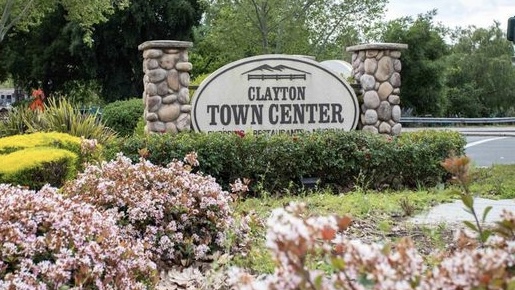In response to a crumbling economy, California lawmakers have been struggling to develop ways to cut costs while meeting the needs of the people. Such efforts have resulted in Title 5 changes and the SB 1440 bill. On the surface, these bills appear to impose limits on repeating classes and make it easier to transfer from community colleges to the CSU system, respectively. But a deeper examination of the implications of these bills reveals a changing educational ideology – one that threatens to undermine the Higher Education Opportunity Act of 2008.
“There’s definitely a barrier to getting an education,” said DVC English major Jon Balza, 20.
The current cuts that have been proposed for California’s 112 Community Colleges add up to $400 million. Should an all-cuts budget pass, these cuts could double to $800 million.
In a meeting between Public Higher Education Leaders and Governor Jerry Brown, Calif. Community Colleges Chancellor Jack Scott told Gov. Brown that cuts in previous years have resulted in 140,000 students being denied access to community college classes in the state.
A press release revealed that if the all-cuts budget were imposed, another 400,000 students would not have access to the classes that they need in order to achieve their educational goals.
At a recent district meeting, possible scenarios for proposed mid-year cuts were discussed.
Judy Breza, Director of Fiscal Services of the Contra Costa Community College District said, “It’s pretty lousy when that’s your best case,” in reference to her perceived best possible option.
The SB 1440 bill creates an associate degree for transfer which guarantees that a student can enter the CSU system as a college junior; this cuts down on the amount of classes that a student needs to take in order to earn their degree.
The Title 5 changes are concerning a students’ ability to repeat classes. Students will only be able to repeat a class three times (as opposed to the seven times that they were allowed to repeat a class in the past). The Title 5 changes are retroactive. This means that they will apply to people who repeated classes before the changes even go into effect.
Perhaps these changes are benign – practical policy changes that will encourage students to be more degree-oriented and increase consequences for students who may not be academically applying themselves while saving the state money. But these changes reveal threats to some of the principles that the California Community Colleges were founded upon.
While budget cuts are forcing community colleges to make changes, the founding principles of California’s Community Colleges should not be on the cutting board.
In 1960, CA lawmakers adopted the Master Plan for Higher Education. They wanted to ensure that California residents had access to exceptional educational and vocational programs so that the state’s workforce and economy would be strong and competitive.
A major feature of this Master Plan is known as the Differentiation of Functions. Simply put, this is the part where it is acknowledged that UC’s, CSU’s, and Community Colleges have different purposes.
A document from the UC Office of the President shows that while all three systems strive to provide students with access to higher education, the Community Colleges are also to provide: “… remedial instruction, English as a Second Language courses, adult noncredit instruction, community service courses, and workforce training services.”
This means that one of the major goals of California’s Community Colleges is to allow students to take exploratory classes and engage in lifelong learning. Such opportunities are especially helpful to students who seek a higher education, but are not yet sure of what they would like to spend their life doing.
But, in times of fiscal desperation, the opportunity to take these classes may seem like more of a luxury than a necessity. To many, the Title 5 changes and the SB 1440 bill appear to be incremental steps towards changing California’s community colleges from institutions that support academic exploration and lifelong learning to becoming institutions that promote a more linear educational path (with the ultimate priority being to obtain a degree).
Ted Wieden is not only DVC’s Interim Senior Dean of Curriculum and Instruction but the accreditation Liason Officer. When asked about the impacts that possible cuts to lifelong learning and/or exploratory classes may have, Wieden said, “Lifelong learning is one of the principles of the Calif. Community Colleges. When the Master Plan was drafted, lawmakers recognized that a more well-informed society carries with it many intangible benefits. People tend to be more productive. They are more engaged as a community. Crime rates go down. You can not always directly pinpoint the benefits, but they are there.”
DVC Counselor Dennis Franco added, “For example, if a person took P.E. classes or health education oriented classes for their own benefit (and not for the benefit of earning credits toward a degree or certificate), these classes would contribute to the overall health of that individual. Society sees the benefits in lower health care costs. They are physically and emotionally more healthy. They miss less days at work. In this way, these ‘nonrequired classes’ benefit the individual, his or her employer, and society as a whole.”
Regarding lifelong learning students, Franco said, “[Giving] people outlets for enjoyment or broadening their horizons creates a more productive worker. It creates opportunities for stress release in a positive manner. That is something that our culture and society has a hard time recognizing – the value of these positive outlets.”
Yet, the conflict remains – how can community colleges support such programs when the budget cuts are making it difficult for students to get classes that they will need in order to earn their degrees?
“As much as I am against cutting exploratory and lifelong learning classes, the circumstances of the budget cuts make me lean toward it,” said Rene Juarez, a 21-year old English major.
“I have seen people who show up one early for the first day of class and put their name into a hat, hoping that their name will be drawn so that they can occupy one of the three available spaces for that class. They need this class in order to transfer. But, many of them are unable to get it because the class is filled with people who are retaking it for the fifth time or just for fun. The times are different. I want classes to be more available to students who need that space.”
At a recent district meeting, Helen Benjamin, Chancellor of the Contra Costa Community College District, said, “Right now, there are no hybrids of courses for lifelong learners. There is no current authority in the district [to differentiate between lifelong learners and other students].”






































































